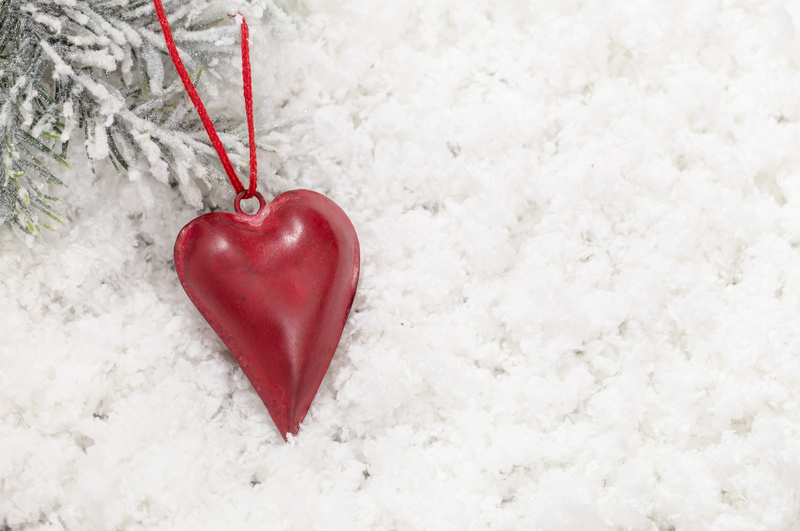Elevate Your Eco-Friendly Lifestyle with Home Recycling Tips
Every action we take at home ripples across the world. Small shifts in how we sort, reuse, and recycle have a big impact on the environment. If you're looking to elevate your eco-friendly lifestyle, mastering home recycling tips is a fantastic start. From beginners to seasoned recyclers, this comprehensive guide will show you how to recycle smarter, reduce waste, and embrace sustainability at home.
Why Home Recycling Matters for a Sustainable Future
Our planet produces billions of tons of waste each year, much of which ends up in landfills or pollutes our oceans and landscapes. Recycling at home is one of the easiest yet most impactful ways to shrink your ecological footprint. Here's why:
- Reduces landfill waste: Recycling minimizes garbage sent to landfills, conserving land and decreasing toxic emissions.
- Protects natural resources: Reusing materials means fewer raw resources are extracted, preserving forests, water, and minerals.
- Decreases pollution: Proper waste sorting lowers pollution by avoiding incineration and runoff.
- Conserves energy: Producing goods from recycled materials often uses much less energy than starting from scratch.
- Supports the economy: Recycling creates jobs and supports green industries.
By turning your home into a sustainable, eco-friendly sanctuary, you become an active part of the solution. Let's dive into top home recycling strategies to boost your eco-conscious lifestyle.

Understanding What You Can (And Can't) Recycle at Home
The golden rule for effective recycling is to know which items can and cannot be recycled in your local area. Local guidelines may vary, so always check your municipality's recycling rules. Here are some common household materials and their recyclability:
Materials You Can Typically Recycle
- Paper: Newspapers, magazines, office paper, cardboard boxes (flattened), junk mail
- Plastic: Most bottles and containers stamped with recycling labels #1 and #2
- Glass: Clear, brown, and green food and beverage containers
- Metal: Aluminum cans, tin/steel food cans, clean foil
Items You Usually Cannot Recycle
- Food-soiled paper (pizza boxes, napkins, paper plates)
- Plastic bags and wrap (unless dropped off at designated recycling points)
- Styrofoam or polystyrene containers
- Ceramics, window glass, mirrors
- Electronic waste and batteries (require special disposal)
Pro tip: If in doubt, leave it out. Contaminated recycling bins may end up as landfill waste due to improper sorting.
Smart Home Recycling Tips to Upgrade Your Green Living
1. Set Up a Simple System
Organization is key! Designate clearly labeled bins in convenient locations--kitchen, bathroom, and garage--for recyclables, compost, and trash. Color-code or use images for each bin if you have children to make segregation effortless for everyone in the household.
2. Clean and Dry Before Recycling
Clean recyclables equal quality recyclables. Rinse out bottles, jars, and cans before tossing them in your recycling bin to prevent mold and contamination. Dry items if possible; wet materials can spoil paper products and reduce recycling efficiency.
3. Master the Art of Composting
Transform kitchen scraps and yard waste into nutrient-rich compost for your garden!
- Gather fruit and vegetable peels, coffee grounds, eggshells, and yard trimmings.
- Avoid composting meat, dairy, or oils, which can attract pests.
- Learn about indoor composting if you live in an apartment.
Composting not only diverts waste from landfills but also enriches your soil and reduces chemical fertilizer use.
4. Reuse Before You Recycle
The best way to cut waste? Don't create it in the first place! Before recycling, ask yourself: Can this item be reused, repurposed, or donated?
- Turn jars into storage containers or flower vases.
- Use tattered t-shirts as cleaning rags.
- Donate books, clothing, or electronics to charities.
Giving new life to items expands the impact of your eco-friendly lifestyle.
5. Avoid Wishcycling
Wishcycling happens when you throw questionable items into the recycling bin, "wishing" they'll get recycled. This actually disrupts the recycling process and can contaminate entire batches. If you're unsure, look up local guidelines or seek advice from your municipal waste provider.
6. Reduce Plastic Use
- Switch to reusable shopping bags, water bottles, and containers.
- Buy in bulk to minimize single-use plastic packaging.
- Choose products in glass or cardboard over plastic when possible.
By reducing demand for plastic, you're lowering the burden on both recycling facilities and the environment.
7. Safely Dispose of Special Items
Batteries, electronics, paints, and chemicals require special handling. Many cities have e-waste collection events or designated drop-off sites for hazardous waste. Never put these items in your curbside recycling bin.
8. Get the Family Involved
Instilling green habits at home is easier together. Make recycling fun by creating challenges, tracking progress, and celebrating milestones as a family. Educate kids about why protecting the environment matters and how recycling works.
Advanced Home Recycling Strategies for Seasoned Green Warriors
Audit Your Waste
Keep a weekly log of everything you toss or recycle. Spot patterns and find opportunities to reduce, reuse, or improve recycling habits. You might be surprised how much you can cut back!
Repurpose "Non-Recyclables" Creatively
- Turn cereal boxes into drawer organizers.
- Upcycle glass bottles into lamps, candle holders, or bird feeders.
- Craft old magazines into homemade envelopes or coasters.
Let creativity drive your eco-friendly lifestyle at home!
Join or Start a Community Recycling Program
If your neighborhood lacks comprehensive recycling, consider joining forces with neighbors to lobby for better facilities or kick-off a local recycling drive. Community efforts multiply the benefits of eco-conscious living.
Essential Eco-Friendly Recycling Resources
- Earth911 -- Find recycling locations for almost anything, anywhere in the US.
- EPA's Recycling Guide -- Up-to-date government advice on recycling best practices.
- The Recycling Partnership -- Community and educational resources for households without curbside recycling.

Frequently Asked Questions About Home Recycling and Green Living
How do I know what's recyclable in my area?
Check your local government's website or contact your waste management company. Recycling rules can change frequently!
Is it better to recycle or compost food waste?
Composting is ideal for biodegradable kitchen and yard scraps. Recycling is better for paper, plastics, glass, and metals. Both reduce landfill waste and benefit the environment in different ways.
What should I do with plastic bags and styrofoam?
Most curbside programs don't accept these items. Look for special collection points at grocery stores for plastic bags. Check local recycling centers for polystyrene drop-offs.
Can small changes really make a difference?
Absolutely! Millions of individuals making small eco-friendly changes add up to big global impacts. Begin with a few home recycling tips and expand as your green confidence grows.
How can I encourage my family to recycle more?
Lead by example, make recycling convenient, and turn it into a fun game or family challenge. Kids love to sort and compete--make eco-friendly living an adventure!
Elevate Your Home's Eco-Friendly Lifestyle -- Start Today!
Adopting an eco-friendly lifestyle isn't about perfection--it's about continuous improvement, smart choices, and everyday action. Use these home recycling tips as your roadmap to a greener, cleaner, and more sustainable home. Start small, keep learning, and celebrate every eco-friendly victory along the way.
- Set up a recycling station at home this week.
- Begin composting your food scraps.
- Swap out single-use plastics for reusable alternatives.
- Teach a friend or family member your favorite home recycling tips.
Your personal choices have the power to change the world. Elevate your eco-friendly lifestyle--starting with better home recycling habits today!